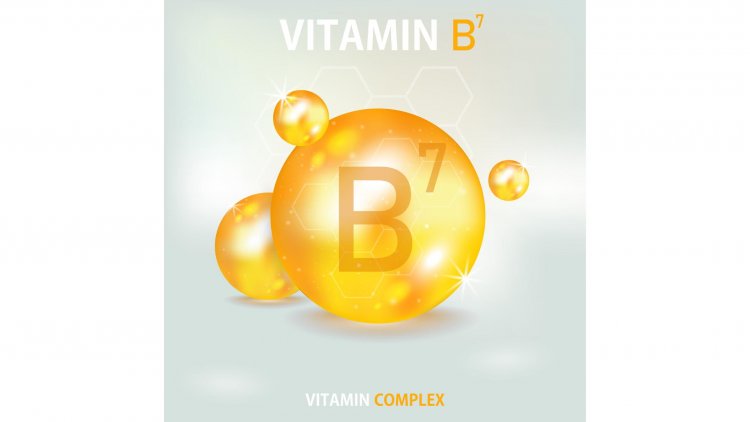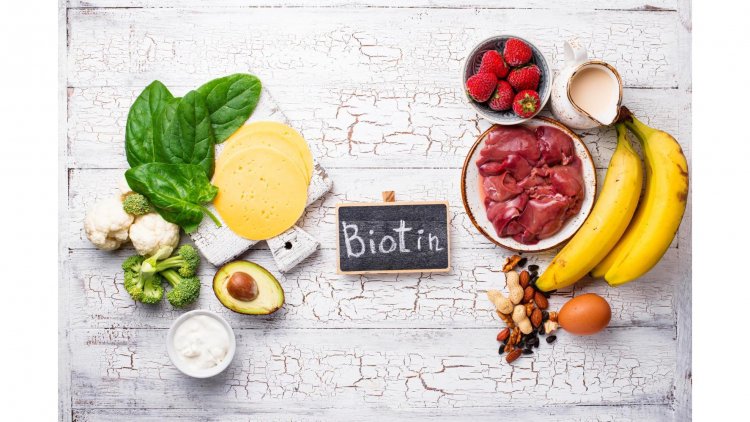The Beauty Vitamin: How Biotin Transforms Skin Health
Biotin, also known as vitamin B7, is a water-soluble vitamin that plays a crucial role in maintaining the health of your skin, hair, and nails. Often dubbed the "beauty vitamin," biotin has gained immense popularity in the world of skincare and dermatology. But what exactly does biotin do for your skin? Can it really give you that radiant glow everyone craves? Let's dive into the science behind biotin and uncover what dermatologists have to say about its benefits for your skin.

What is Biotin?
Biotin is a part of the B-complex vitamins, which are essential for converting food into energy. It is naturally present in many foods and can also be taken as a dietary supplement. Biotin is involved in various metabolic processes in the body, including the synthesis of fatty acids and glucose. This vitamin is vital for maintaining the health of your skin, hair, and nails, making it a popular ingredient in many beauty and skincare products.

Sources of Biotin
Biotin can be found in various foods, such as:
- Eggs (particularly the yolk)
- Nuts and seeds
- Salmon
- Dairy products like milk and cheese
- Whole grains
- Legumes like peas, beans, and lentils
- Organ meats such as liver and kidney
- Vegetables like spinach, broccoli, and sweet potatoes
While biotin deficiency is rare due to its abundance in a balanced diet, certain factors such as pregnancy, chronic conditions, or the long-term use of antibiotics can lead to lower biotin levels, necessitating supplementation.
The Role of Biotin in Skin Health
Biotin plays a pivotal role in maintaining healthy skin. It is essential for the formation of fatty acids that nourish the skin and help maintain its moisture barrier. This, in turn, can lead to smoother, more hydrated skin.
Benefits of Biotin for Skin
Improved Skin Hydration
Biotin helps improve skin hydration by supporting the production of fatty acids. These fatty acids act as building blocks for the skin, helping to retain moisture and prevent dryness. Well-hydrated skin is not only healthier but also appears more youthful and vibrant.
Enhanced Skin Barrier Function
A robust skin barrier is crucial for protecting the skin from environmental stressors and preventing moisture loss. Biotin contributes to the formation of a strong skin barrier, which can help reduce the occurrence of skin conditions such as eczema and dermatitis.
Reduction of Inflammation
Biotin has anti-inflammatory properties that can help soothe irritated skin. This makes it particularly beneficial for individuals with inflammatory skin conditions like acne, psoriasis, and rosacea. By reducing inflammation, biotin can help alleviate redness and discomfort associated with these conditions.
Biotin Supplementation: How Much is Enough?
When it comes to biotin supplementation, it's essential to get the dosage right. While biotin is water-soluble and excess amounts are excreted in urine, it's still crucial to follow recommended guidelines to avoid potential side effects.
Recommended Dosage
The recommended daily intake of biotin varies depending on age, sex, and health status. For adults, a daily intake of 30 to 100 micrograms is generally considered adequate. However, higher doses (up to 5,000 micrograms) are often used in supplements marketed for skin, hair, and nail health. Always consult with a healthcare provider before starting any new supplement regimen.
Potential Side Effects
While biotin is generally considered safe, taking excessively high doses can lead to side effects such as:
- Skin rashes
- Digestive upset
- Kidney problems (in rare cases)
To minimize the risk of side effects, it's best to stick to recommended dosages and consult with a healthcare professional if you have any concerns.
Integrating Biotin into Your Skincare Routine
Adding biotin to your skincare routine can be done in various ways, whether through diet, supplements, or topical products. Here are some practical tips on how to incorporate biotin effectively:
Dietary Sources
Including biotin-rich foods in your diet is one of the easiest ways to ensure you're getting enough of this vital nutrient. Eggs, nuts, seeds, and leafy greens are excellent sources of biotin and can be easily incorporated into your daily meals.
Supplements
If you struggle to get enough biotin through your diet, supplements can be a convenient option. Biotin supplements are available in various forms, including tablets, capsules, and gummies. Be sure to choose a reputable brand and follow the recommended dosage instructions.
Topical Products
Many skincare products, such as creams and serums, now contain biotin as an ingredient. These products can be directly applied to the skin to help improve hydration and support the skin barrier. Look for products specifically formulated for your skin type to maximize their benefits.
Understanding the vital role biotin plays in skin health can help you make informed decisions about your skincare routine. Whether you choose to enhance your diet with biotin-rich foods, opt for supplements, or try topical products, the key is consistency.
Biotin's Impact on Specific Skin Conditions
Biotin's role in skin health extends beyond basic hydration and barrier support. It can also be beneficial for managing various skin conditions. Here's how biotin can help with specific skin issues:
Acne
Biotin's anti-inflammatory properties can help reduce the severity of acne. By decreasing inflammation, biotin can alleviate redness and swelling associated with acne lesions. Moreover, its ability to improve skin hydration and barrier function can prevent the overproduction of sebum, which often contributes to acne development.
Eczema and Dermatitis
Eczema and dermatitis are characterized by dry, itchy, and inflamed skin. Biotin's role in supporting fatty acid production and skin barrier function can help manage these conditions by keeping the skin moisturized and reducing inflammation. Regular biotin supplementation can lead to fewer flare-ups and improved overall skin health.
Psoriasis
Psoriasis is an autoimmune condition that causes rapid skin cell turnover, leading to scaly patches on the skin. Biotin's anti-inflammatory properties can help soothe the skin and reduce the appearance of these patches. While biotin alone is not a cure for psoriasis, it can be part of a comprehensive treatment plan to manage symptoms.
The Science Behind Biotin Absorption
For biotin to be effective, it must be properly absorbed and utilized by the body. Understanding the factors that influence biotin absorption can help you maximize its benefits.
Bioavailability of Biotin
Bioavailability refers to the extent to which a nutrient can be absorbed and used by the body. Biotin has high bioavailability, meaning it is readily absorbed from dietary sources and supplements. However, certain factors can affect its absorption:
- Raw Egg Whites: Consuming raw egg whites can interfere with biotin absorption due to the presence of avidin, a protein that binds to biotin and prevents its absorption. Cooking egg whites deactivates avidin, making biotin available for absorption.
- Gut Health: A healthy gut is essential for nutrient absorption. Conditions such as inflammatory bowel disease (IBD) or gut dysbiosis can impair biotin absorption. Maintaining gut health through a balanced diet and probiotics can support optimal biotin absorption.
Enhancing Biotin Absorption
To enhance biotin absorption, consider the following tips:
- Balanced Diet: A diet rich in biotin-containing foods ensures a steady supply of this nutrient. Incorporate biotin-rich foods such as eggs, nuts, and leafy greens into your meals.
- Supplement Form: If you opt for supplements, choose those with high bioavailability. Liquid biotin supplements or those in soft gel form are often more easily absorbed than tablets or capsules.
- Avoid Antagonists: Limit the intake of substances that can interfere with biotin absorption, such as raw egg whites and excessive alcohol consumption.
The Future of Biotin in Skincare
As research on biotin continues, its potential applications in skincare are expanding. Scientists are exploring new ways to harness the benefits of biotin, from advanced supplements to innovative topical formulations.
Emerging Research
Recent studies are investigating the role of biotin in promoting skin cell regeneration and repair. These findings could lead to the development of new biotin-based treatments for various skin conditions and aging-related concerns.
Biotin-Enriched Skincare Products
The skincare industry is constantly evolving, and biotin-enriched products are becoming more popular. Look out for moisturizers, serums, and masks that feature biotin as a key ingredient. These products aim to deliver the benefits of biotin directly to the skin, enhancing its health and appearance.
Personalized Skincare
With advances in personalized medicine, dermatologists may soon be able to tailor biotin treatments to individual needs. Genetic testing and skin assessments could help determine the optimal biotin regimen for each person, maximizing its effectiveness.
Incorporating biotin into your skincare routine can yield impressive results, from improved hydration to reduced inflammation. By understanding the science behind biotin and following expert advice, you can unlock the full potential of this beauty vitamin. Whether you choose dietary sources, supplements, or topical products, consistency and a well-rounded approach are key to achieving healthy, glowing skin.
Overall Conclusive Paragraph
Biotin, often celebrated as the "beauty vitamin," offers a range of benefits for skin health. Its ability to improve hydration, enhance the skin barrier, and reduce inflammation makes it a valuable addition to any skincare regimen. While biotin is not a standalone cure for skin conditions, it can complement other treatments and contribute to overall skin vitality. By incorporating biotin through diet, supplements, and topical products, you can support your skin's health and achieve a radiant complexion. Remember to consult with a healthcare professional to determine the best biotin regimen for your individual needs.
Disclaimer
The information provided in this article is for educational purposes only and should not be considered medical advice. If you have any health concerns or are experiencing symptoms, it is important to consult with a healthcare professional, such as a doctor or clinic, for proper diagnosis and treatment. Always seek the advice of your doctor or other qualified health provider with any questions you may have regarding a medical condition. Do not disregard professional medical advice or delay in seeking it because of something you have read in this article.
What's Your Reaction?





















